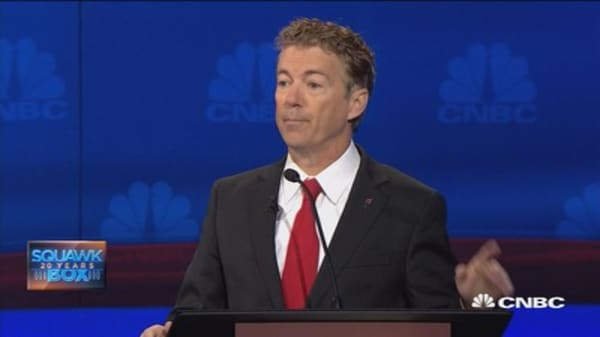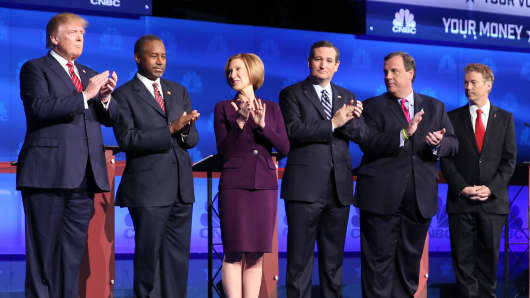Last night was billed as a chance for Americans to hear the GOP presidential candidates debate their economic policies. What we got, in between jabs at the media, the Democratic candidates, and each other, was a series of incoherent sound bites. Candidates lauded flat taxes and a radically shrunken tax code, and excoriated "big government" at every turn – but without any clear articulation of how these fragmentary ideas would create shared prosperity or growth. Their proposals did not seriously address stagnant wage growth, the decimation of the middle class or ways to reverse the concentration of wealth at the top.
This was a big missed opportunity. Certainly, the candidates were trying to distinguish themselves and play to their own base voters. References to middle-class struggles did show that candidates are aware of the deep suffering and anxiety caused by wage stagnation and unemployment/underemployment. However, much of what we heard made vague reference to the now-discredited set of policies driven by supply-side economics: shrink government, cut taxes. The not-so-secret truth is that Republican voters want something different than what the candidates are proposing; they want deep structural changes that rewrite the rules of the economy and provide economic security for the middle class.










